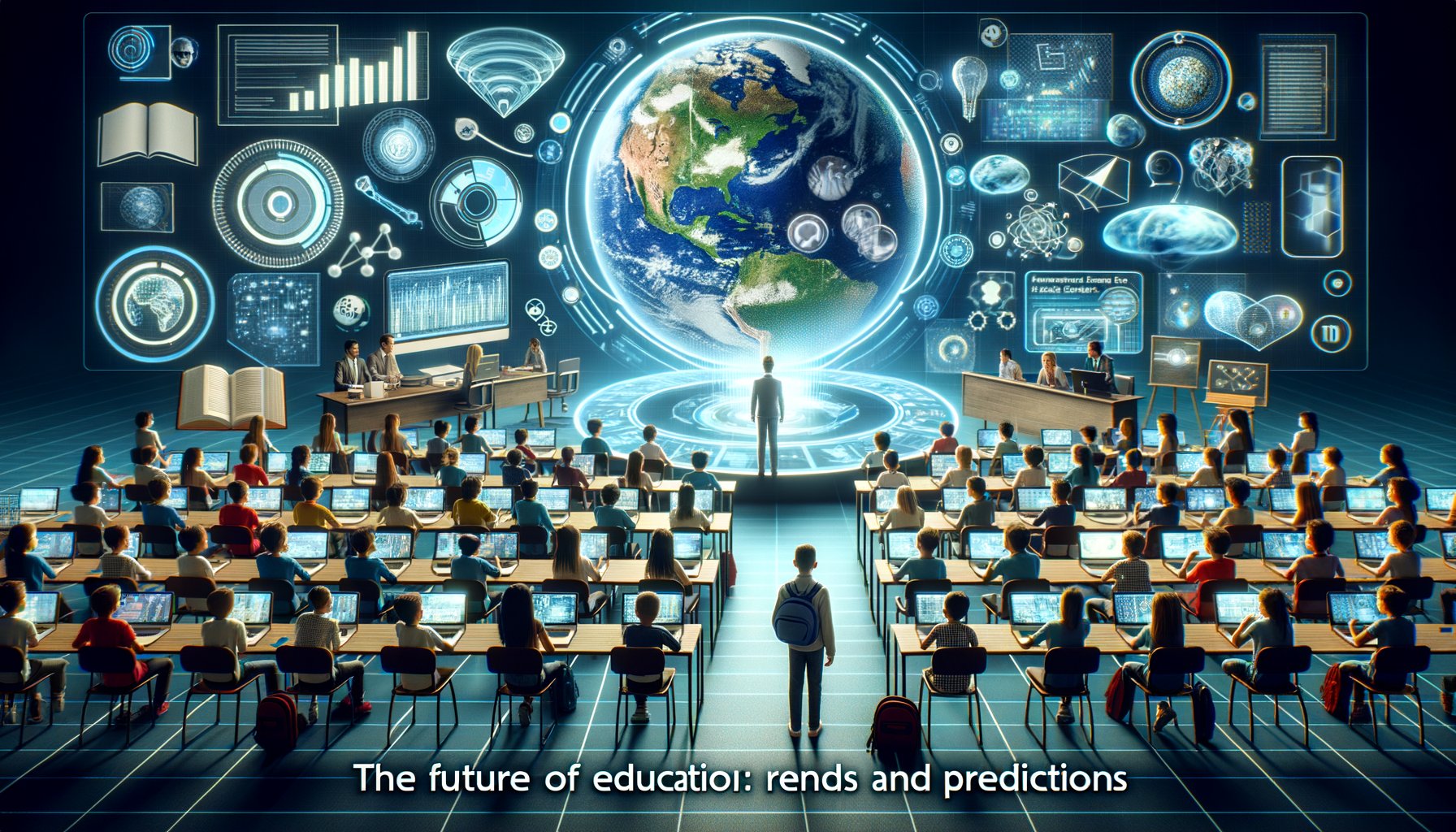Physical Address
304 North Cardinal St.
Dorchester Center, MA 02124
Physical Address
304 North Cardinal St.
Dorchester Center, MA 02124

As we navigate the ever-evolving landscape of the 21st century, it is clear that education is a sector poised for significant transformation. The advent of technology, changing societal norms, and globalisation are just some factors shaping the future of education. This article explores these trends and provides predictions on what lies ahead.
One trend that has seen exponential growth in recent years is online learning. Traditional classrooms are being replaced by virtual platforms where students can learn at their own pace, from anywhere in the world. Platforms such as Coursera and Udemy offer a myriad of courses across various disciplines, providing learners with unprecedented access to knowledge.
Moreover, this shift towards online learning has been accelerated by the COVID-19 pandemic. Schools worldwide have had to adapt quickly to remote learning protocols, making digital literacy an essential skill for both educators and students.
Artificial Intelligence (AI) is another technological advancement set to revolutionise education. AI can personalise learning experiences based on each student’s strengths and weaknesses. It can also automate administrative tasks, freeing up time for teachers to focus on instruction.
Furthermore, AI can provide valuable data analytics to help educators track student progress better and identify areas needing improvement. As AI continues to mature, its impact on education will only increase.
In today’s fast-paced world where new skills are constantly required, there is a growing emphasis on lifelong learning – the ongoing pursuit of knowledge for personal or professional reasons. Universities now offer micro-credentials – short courses that allow individuals to acquire specific skills or knowledge quickly.
Lifelong learning encourages adaptability, a trait that is increasingly important in the ever-changing job market. It fosters a culture of continuous growth and self-improvement, ensuring that learners remain relevant and competitive.
Another emerging trend in education is the focus on Social-Emotional Learning (SEL). SEL helps students develop essential skills such as empathy, resilience, and emotional intelligence. These skills are vital for personal well-being and success in today’s interconnected world.
Research shows that SEL not only improves academic performance but also promotes positive behaviour and reduces emotional stress. As mental health becomes an increasing concern, integrating SEL into the curriculum will be crucial.
Looking ahead, it’s clear that technology will continue to play a pivotal role in education. We can expect more sophisticated AI tools capable of providing personalised learning experiences at scale. Virtual Reality (VR) and Augmented Reality (AR) may also become commonplace, offering immersive learning experiences that transform how we understand complex concepts.
We might also see a shift towards competency-based education – where students progress by mastering specific skills or knowledge areas rather than spending a fixed amount of time in class. This approach aligns with the demand for lifelong learning and could make education more efficient and relevant.
Finally, as societal awareness about mental health grows, schools may integrate more holistic approaches to education, focusing not just on academic achievement but also on overall student well-being.
The future of education holds much promise and potential. By embracing these trends and predictions, we can create an educational landscape that is dynamic, inclusive, and conducive to lifelong learning – preparing our children not just for exams but for life itself.